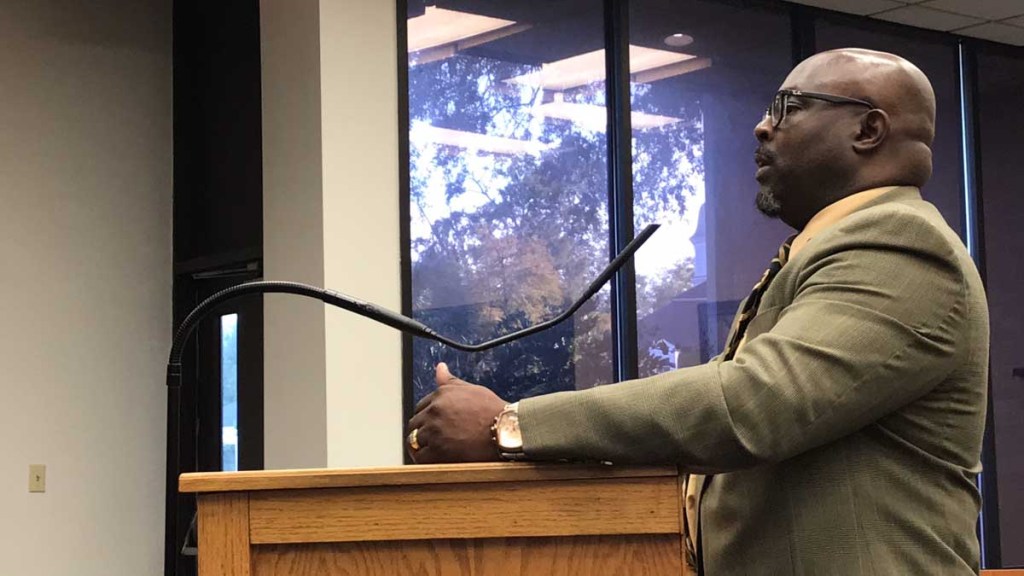City council discusses economic development deal with county
Published 10:30 am Friday, October 6, 2017

- Alvin Jackson, economic development director, said economic development doesn’t stop at county and city borders.
LIVE OAK, Fla. — The Live Oak City Council unanimously passed both its budget and millage rate at Tuesday’s final budget hearing.
The city’s final millage rate is 8.9132, which is the rollback rate and a slight drop from last year’s rate of 8.925 mills, and the approved budget is $24,725,216. There were no changes to either from the preliminary budget hearing other than following the council’s decision to move $50,000 from street improvements to the storm water fund to begin a retention pond project at 6th Street and Green Avenue.
But those approvals did not come before resident Dick Calvitt sparked discussion regarding the amount the city contributes to Alvin Jackson’s role as Economic Development Director.
Calvitt also questioned the $47,000 the city pays for economic development at the city’s preliminary budget hearing at its Sept. 19 meeting.
“If you recall, I had a concern with the amount and another point was that there was no term date on that resolution, it’s open-ended,” Calvitt said. “So we’re agreeing to 47,000 year after year after year with no review or no documentation of what we expect under that resolution.
“Just having it open-ended doesn’t really make a lot of sense, to me.”
City Manager Ron Williams said that Calvitt’s initial inquiry led to discussions with County Administrator Randy Harris about the interlocal agreement between the two governments in regards to Jackson’s role.
Williams said the city will explore changes to that agreement, but with the county having already approved its budget for Fiscal Year 2017-18, it would not be right for the city to change its contribution at this time.
“The agreement needs to be amended to address more specifically a city’s participation in the economic development program,” he said.
But councilmen David Burch and Frank Davis questioned whether the county had already altered the terms to the interlocal agreement when it appointed Jackson to the head of the Tourist Development Council in addition to his position as Economic Development Director.
“When he took over the TDC, was that outside the realm of the agreement they have with us?” Burch asked.
“Which makes me wonder if they haven’t already changed some of the conditions of that interlocal agreement,” Davis said, also questioning whether Jackson was getting part of his salary from the county through the TDC.
Jackson assured Davis that was not the case. He said he is not paid anything from the TDC.
“Actually, the TDC is getting my services at no cost,” he said, adding that he doesn’t worry about dividing his time up based on who is paying what. That he works on whatever projects he has regardless of if they are in the city or the county.
“Tourist development is economic development. It doesn’t stop at the county line. Basically when we’re doing tourist development, it represents the city also. That’s the real beauty of the city and county working together on economic development, because basically it really does not stop at what I call political subdivisions.”
Still, Burch and Davis agreed that the city needs to reevaluate its contribution to Jackson’s salary.
“We might want to just look at, is it worth contributing to that or just going out and hiring our own after that agreement,” Burch said. “I’d like to at least look at that. Try and get a little more bang for our buck.”



